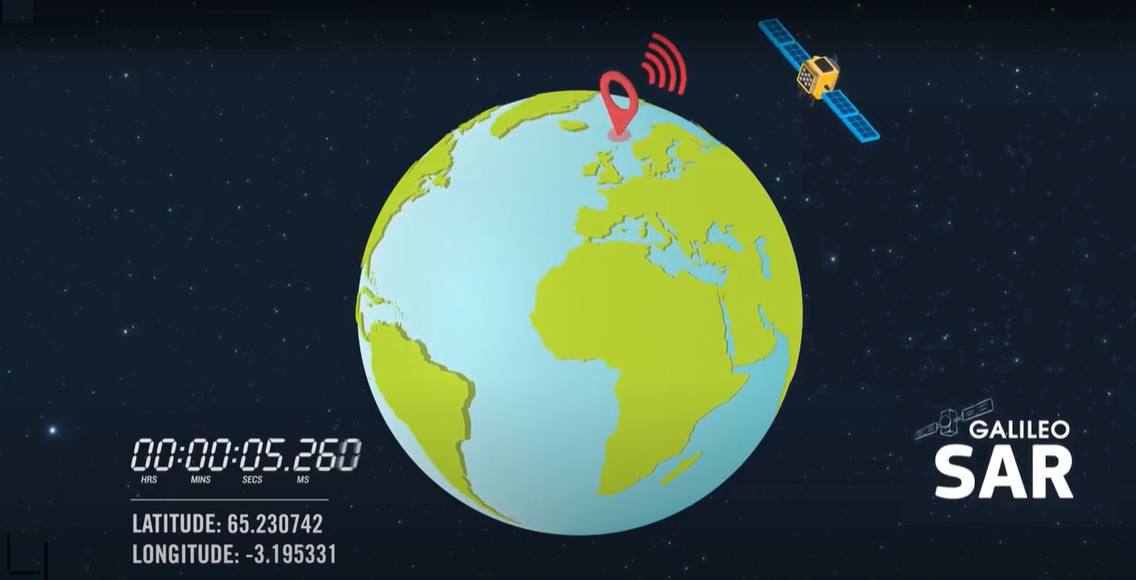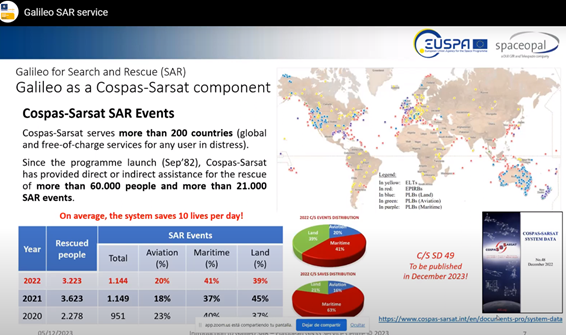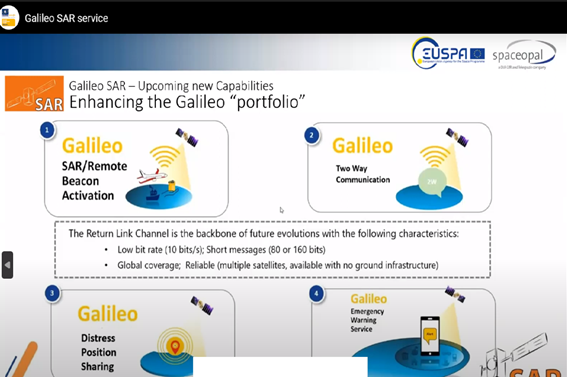


On the 5th of December the GIC organized this online webinar in English with the aim of making Galileo’s SAR service known in the Caribbean region, as well as in the rest of the countries covered by the center. Attendees came from countries such as Saint Kitts and Nevis, Bahamas, and Venezuela, among others.
The event started with a brief introduction and welcome by D. Luis Cuervo, responsible for the Galileo Information Centres in Latin America and representing the European Commission and the Directorate-General for Defence, Industry and Space.
Elena Megias, coordinator of the Galileo Information Centre, was in charge of presenting the GIC, its objectives and the interesting activities it carries out. She also gave an introduction to GNSS, focusing on Galileo, the European GNSS and highlighting the benefits of Galileo over other GNSS and the services it offers.
On the other hand, Ernesto Llorente (GSC – GNSS Service Centre) dedicated his presentation to the Galileo SAR service as a component of Cospas-Sarsat.

The main objective of the talk was to familiarise those presents with the Galileo SAR service. Global Search and Rescue (SAR) operations quickly locate and assist people lost in hostile environments (sea, jungle…). The SAR/Galileo service, launched on December 15, 2016 as part of Galileo’s initial services, contributes to these life-saving efforts by rapidly transmitting radio beacon distress signals to SAR crews using payloads aboard Galileo satellites.
On January 21, 2020, the SAR/Galileo Return Link Service (RLS) was declared operational. Galileo now not only locates people in distress and makes their position known to the relevant authorities, but SAR/Galileo RLS provides an automatic acknowledgement message to the user informing them that their request for help has been received.
Regarding the possible future services that we want to offer from Galileo SAR, there are RBA-Remote Beacon Activation in aircraft (activation and tracking of beacons on demand), TWC-Two Way Communication (basic but effective communication between RCC and people in need), DPS -Distress Position Sharing (sharing the location of people in distress to seek potential help nearby) and EWS-Galileo Emergency Alert Service (alert specific regions about possible emergency situations).

Once again, the organisation of this webinar has allowed the GIC to promote European satellite navigation systems (EGNSS) and in particular the Galileo SAR service, which is particularly interesting in a region where natural disasters are common and emergency teams must act with maximum efficiency.
You can watch the session at Webinar – Galileo Information Centre Mexico | GIC Mexico (galileoic-mexico.com)
| Cookie | Duration | Description |
|---|---|---|
| cookielawinfo-checkbox-analytics | 11 months | This cookie is set by GDPR Cookie Consent plugin. The cookie is used to store the user consent for the cookies in the category "Analytics". |
| cookielawinfo-checkbox-functional | 11 months | The cookie is set by GDPR cookie consent to record the user consent for the cookies in the category "Functional". |
| cookielawinfo-checkbox-necessary | 11 months | This cookie is set by GDPR Cookie Consent plugin. The cookies is used to store the user consent for the cookies in the category "Necessary". |
| cookielawinfo-checkbox-others | 11 months | This cookie is set by GDPR Cookie Consent plugin. The cookie is used to store the user consent for the cookies in the category "Other. |
| cookielawinfo-checkbox-performance | 11 months | This cookie is set by GDPR Cookie Consent plugin. The cookie is used to store the user consent for the cookies in the category "Performance". |
| viewed_cookie_policy | 11 months | The cookie is set by the GDPR Cookie Consent plugin and is used to store whether or not user has consented to the use of cookies. It does not store any personal data. |